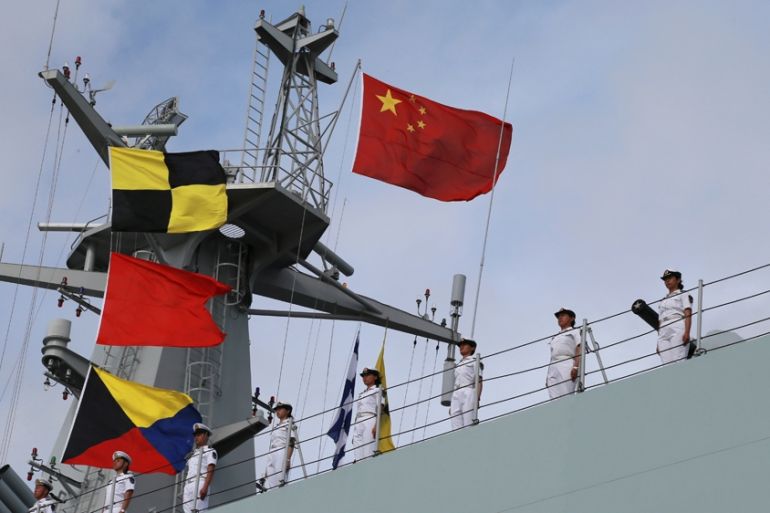China says it is ready for NATO talks on its ‘military rise’
Beijing says China advocates for global peace and security, not intimidation or coercion.

China has said it would continue dialogue with NATO after the 30-member European and North American security bloc identified it as a rising threat alongside Russia.
NATO, the North Atlantic Treaty Organization, included China in its list of challenges in a lengthy report on recommendations for internal reform that was due to be released later on Tuesday.
Keep reading
list of 3 itemsAustralia, US to develop hypersonic missiles to counter China
Why has Australia and China’s relationship turned sour?
Its contents were hinted at by NATO Secretary-General Jens Stoltenberg in a speech on Monday, ahead of a meeting of NATO ministers of foreign affairs.
“China is not our adversary. Its rise presents an important opportunity for our economies and trade. We need to engage with China on issues such as arms control and climate change. But there are also important challenges to our security,” Stoltenberg said, adding that the challenges include China’s vast spending on defence and the global influence it has achieved through strategic infrastructure investment around the world under its Belt and Road Initiative.
On Tuesday, China’s Foreign Ministry spokesperson Hua Chunying said Beijing advocates for global peace and security and not intimidation or coercion as suggested by preliminary information released on the report.
He added that China was a victim of coercive diplomacy and that its spending on military per capita was lower than many other countries.
“The common values of all mankind that China advocates and adheres to are peace, development, fairness, justice, democracy and freedom. I don’t know if these six words can also be recognised by NATO member states. Is this a value that we should hold together?” Hua said.
China has made forays into Europe, with mixed success.
In 2012, it initiated cooperation between China and central and eastern European countries – a combination of NATO and non-NATO countries.
But critics say many of the promises of the bloc, intended to counter NATO’s influence, have been limited.
“The US has been pushing for the past couple of years for China to be higher on NATO agenda,” said Ivana Karaskova, founder of the Czech Republic-based China Observers in Central and Eastern Europe.
“However, the other allies were reluctant to do so” apart from cybersecurity and the South China Sea, she added.
“The inclusion of China to the report shows a considerable change in this perception, though the report is far from declaring China an adversary.”
NATO, however, is unlikely to be seen patrolling the Taiwan Strait soon, according to Mathieu Duchatel, director of the Asia Program at Institut Montaigne.
Instead, he said, its 2030 initiative would likely be looking at different security concerns.
“I think that a lot of China work will be inward-looking, and in particular will focus on intelligence-sharing regarding China’s influence activities and military modernisation. Taking in consideration the China challenge will also mean directing resources to respond to China’s military strengths, such as space and the cyber world.”